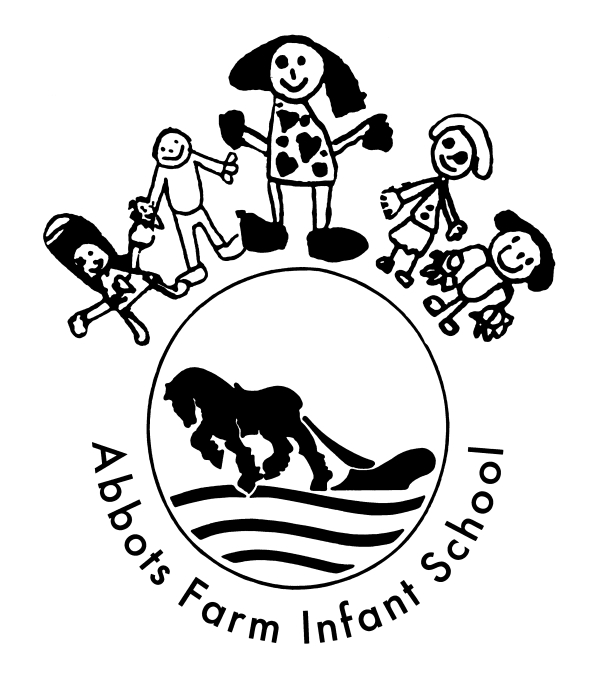The Spiritual, Moral, Social and Cultural (SMSC) development of our students has always been at the heart of the education offered at Abbots Farm Infant School. Our approach to SMSC is embedded in the ethos of mutual respect, partnership working and collaboration; an approach that we believe is fundamental to a full and positive participation in life in modern Britain.
At Abbots Farm Infant School, children will have the opportunity to:
- Share their achievements and successes with others
- Talk about their personal experiences and feelings
- Express and clarify their own ideas
- Speak about the different events appropriate to their age
- Learn about families and relationships within
- Consider the needs and behaviours of others
- Show empathy
- Develop self-esteem and a respect for others
- Develop a sense of belonging
We support the spiritual development of our children to enable them to develop their:
- Self- esteem and early skills of critical thinking and independent thought, ability to be reflective about their own beliefs, religious or otherwise and discuss feelings and responses to experiences that inform their perspective on life.
- To develop their interest in and respect for different people’s faiths, feelings and values, sense of enjoyment and fascination in learning about themselves, others and the world around them and
- Our children will have the opportunity to experience moments of stillness (calm me time) and reflection.
We support the moral development of our children to enable them to develop their:
- Ability to recognise the difference between right and wrong, and to apply this understanding in their own lives and, in so doing, respect the civil and criminal law of England;
- Understanding of the consequences of their behaviour and actions and
- Interest in investigating and offering reasoned views about moral and ethical issues, and being able to understand and show consideration for the viewpoints of others on these issues.
- Our children will show respect for the environment and all living things.
We support the social development of our children to enable them to develop their:
- Use of a range of social skills in different contexts, including working and socialising with children from different religious, ethnic and socio-economic backgrounds;
- Willingness to participate in a variety of communities and social settings, including by volunteering, cooperating well with others and being able to resolve conflicts effectively and
- Acceptance and engagement with the fundamental British Values of democracy, the rule of law, individual liberty and mutual respect and tolerance of those with different faiths and beliefs;
We support the cultural development of our children to enable them to develop their:
- Understanding and appreciation of the wide range of cultural influences that have shaped their own heritage and that of others;
- Understanding and appreciation of the range of different cultures within school and further afield as an essential element of their preparation for life in modern Britain;
- Knowledge of Britain’s democratic parliamentary system and its central role in shaping our history and values, and in continuing to develop Britain;
- Willingness to participate in and respond positively to artistic, sporting and cultural opportunities;
- Interest in exploring, improving understanding of and showing respect for different faiths and cultural diversity and
- Tolerance towards different religious, ethnic and socio-economic groups in the local, national and global communities.
- Cultural capital through teaching the essential knowledge that children need to prepare them for their future success and identifying a vast array of opportunity for every child to experience.
These are the skills and attitudes we believe will allow our children to participate fully in and contribute positively to life in modern Britain.
Practical activities at Abbots Farm Infant School which help develop SMSC:
- Work together in a variety of groups, partners, teams e.g. talk partners, clubs including sports clubs and Bug Club.
- Begin to take responsibility e.g. taking messages, School Council, E-Safety Committee, Sports Ambassadors, Buddy system for new entrants, fruit monitors
- Contribute to their class school rules display
- Show appreciation for the success and performances of others e.g. celebration assemblies on Mondays, class assemblies and end of year performances
- Celebrate the arts from around the world e.g. singing, artwork, dance
- Participate in a variety of educational visits and welcome visitors to the school day
- Enjoy a range of live performances
- Use assemblies to explore a range of themes, festivals, cultures and religions
- Be exposed to stories and literature from different cultures
- Resources e.g. role play will include resources representing different cultures
- Learn songs and chants from around the world
- Have many opportunities to engage in extra -curricular activities including a range of sports clubs and music.
- We use the Kapow music scheme which teaches the children how to play instruments.
- Children have visited the Mayor’s parlour.
- We achieved the Platinum Rugby in Bloom Award
- Every Christmas the whole school visits a theatre
- Children support with recycling by separating out food waste from general classroom waste.
Links with the wider community:
- Close links with parents e.g. visits to families’ homes before Preschool and reception children start;
- Visitors are welcome to the school having completed all the relevant safeguarding checks;
- Children engage in charity fund raising for local needs and beyond – this includes OurJay and Red Nose Day;
- Children are taught and encouraged to look after their local environment and be aware of the wider environment and the effect we have on it.
- Strong links with St John’s Baptist church. Children visit at Christmas and Easter and Rev. Steve Gold comes in to share stories from time to time
- Strong link with Abbots Farm Junior School. Celebrate special days together such as the King’s coronation.
